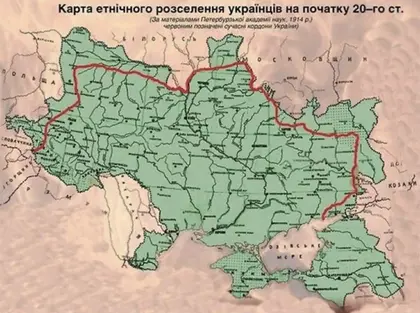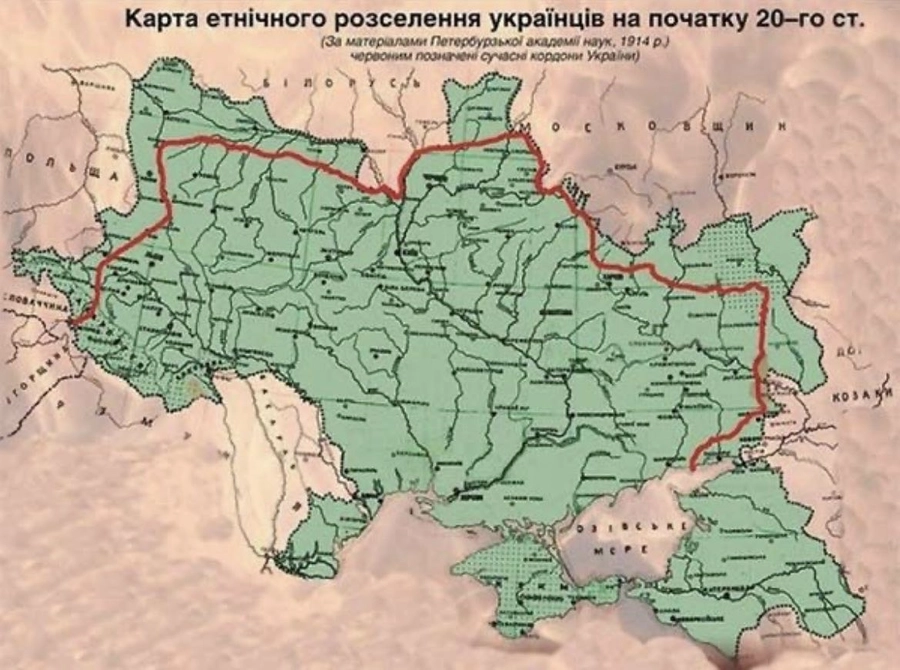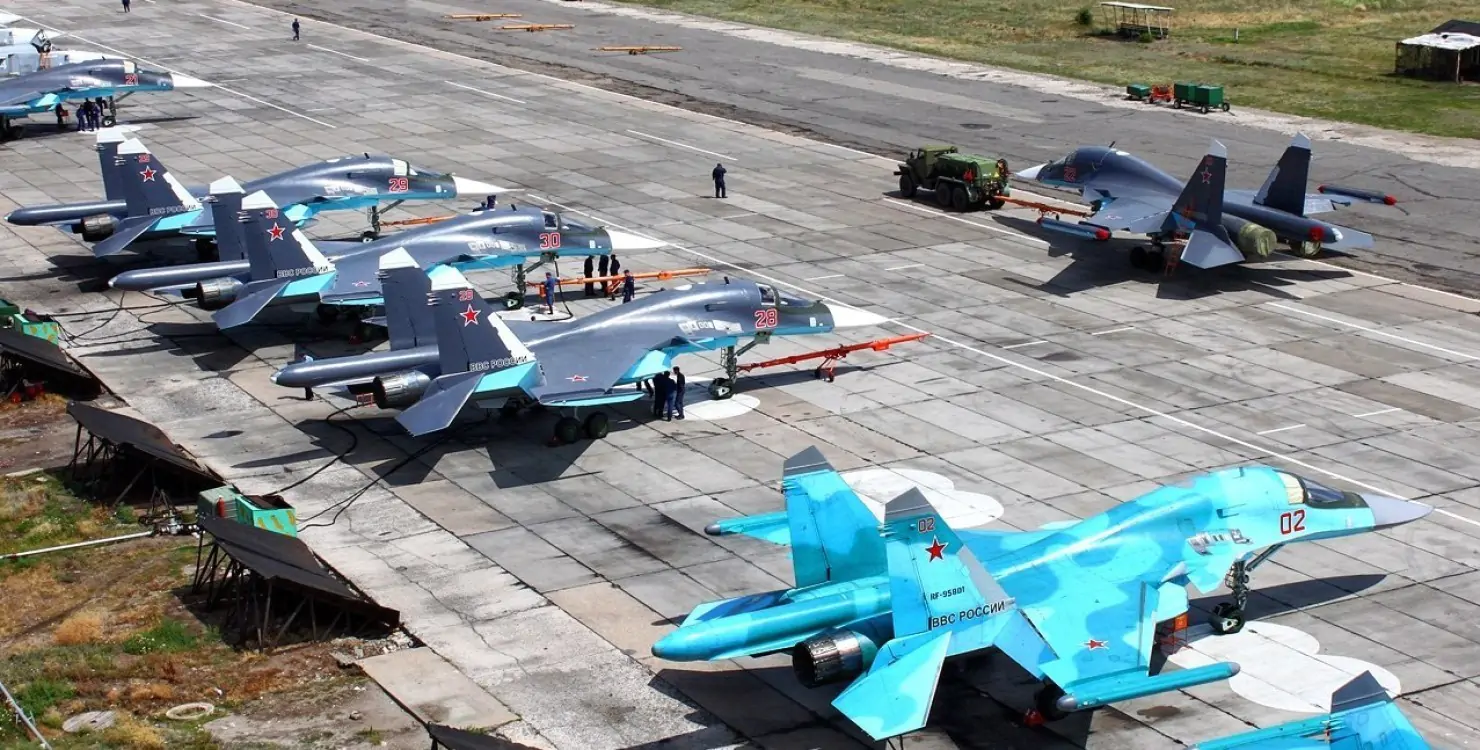On Jan. 22, Ukraine observed National Unity Day, marking the first declaration in 1919 of the unification of Ukrainian lands into a single independent state.
On that same day President Volodymyr Zelensky signed a historically significant decree that calls for an action plan to examine the situation of ethnic Ukrainians in historically Ukrainian lands within the borders of the Russian Federation since 1992, and before that within the Russian Soviet Federative Socialist Republic.
JOIN US ON TELEGRAM
Follow our coverage of the war on the @Kyivpost_official.
For centuries, areas of the Russian Federation beyond Ukraine’s current eastern and northern borders were populated by ethnic Ukrainians, most of whom were assimilated into Russian society. That does not include vast areas of Central Asia and Siberia that were populated by Ukrainians forcibly relocated by Stalin’s orders after World War II.
According to Russian government figures, the number of ethnic Ukrainians among the population of Russian citizens was 4.3 million, or 3 percent, in 1989. That number dropped to less than 884,000, or 0.6 percent by the 2021 census.
Moreover, in 2009 there were an estimated 3.5 million Ukrainian citizens working in the Russian Federation. Since the 2014 Russian invasion of Ukraine, Moscow claims some 2 million Ukrainian refugees have settled within the Russian Federation.
Turning the table on Russia’s rationale
The decree calls for Ukrainian authorities to gather evidence of rights violations and destruction of Ukrainian national identity on the territory of Russia in areas historically inhabited by ethnic Ukrainians – such as the Kuban, around the city of Krasnodar, and the areas around Belgorod, Bryansk, Voronezh, Kursk, and Rostov-on-Don.

Syria’s New Leader Meets With Ukraine’s Top Diplomat
“We must take steps today not only to strengthen the unity of Ukraine and our people but also to act for the unity of rights and freedoms, the truth about Ukrainians, the truth about us, and our history,” Zelensky declared.
He also explained that this decree is “the return of the truth about the historical past for the sake of the Ukrainian future.”
In an apparent mirror-image of Moscow’s “rationale” for invading Ukraine – i.e., to protect Russian-speakers – Zelensky emphasized that “Russia must comply with international obligations to ensure Ukrainians living in its territories, including those historically inhabited by ethnic Ukrainians, have the right to receive education in the Ukrainian language and its free use, civil, social, cultural, and religious rights, have access to Ukrainian-language mass media, and the right to peaceful assembly.”
Zelensky has instructed the Cabinet of Ministers to involve international experts, representatives of the World Congress of Ukrainians, scientists, and the public to develop a plan to preserve the national identity of Ukrainians in the Russian Federation.
He called for the collection of evidence on the crimes committed against Ukrainians as a result of political repression, forced Russification, and deportation of Ukrainians.
The collection of facts and evidence is important not only for dissemination among Ukrainians themselves, but also among the international community.
The decree also mentions the importance of creating an appropriate center for restoring and preserving historical memory, which will address these issues.
Anton Korynevych, ambassador-at-large for the Ministry of Foreign Affairs, explained that this decree is important and has been prepared entirely within the framework of current international law.
“It notes that Russia has always violated and oppressed the rights of Ukrainians,” the ambassador told Kyiv Post
Given the Kremlin’s war against Ukraine, Kyiv sees the need to rebuild ties with those Ukrainians who still live in Russia but consider themselves part of the greater Ukrainian nation.
The authorities will try to ensure these people have the right to receive education in the Ukrainian language, and it can be used in religious rights as well as mass media.
The Ministry of Foreign Affairs does not yet have a clear idea of how this can be organized. Korynevych emphasizes that the state already has some experience in communicating with Ukrainians in the territories occupied by Russia since 2014 – Crimea and the Luhansk and Donetsk regions.
It is possible to collect evidence of the commission of crimes in Ukraine, where there are enough documents, sources, and testimonies of people.
“I think that all the facts that will be collected as part of this work will be given an appropriate legal assessment, in particular, by the legal teams that represent Ukraine in various international judicial institutions,” Korynevych said.
The document, however, does not make territorial claims regarding the specified territories.
Dmitry Medvedev, former President of Russia and Deputy Chairman of the Security Council, reacted to Zelensky’s decree with one of his now-standard Telegram tirades. He stated that “Ukrainians are Russians, and Malorossiya [or Little Russia, as Russians pejoratively call Ukraine] is a part of Russia.”
Map of ethnic Ukrainian lands at the beginning of the 20th century, based on material from the St. Petersburg Scientific Academy, 1914. Red line indicates 1991 borders.
Historical importance
Oleksandr Paliy, a historian and political scientist, believes that it is important for Ukraine to promote its own view of history, especially as it relates to its bordering territories.
“The practical interest is for the world to understand that Ukraine is an ancient state, that it is not only Russia that can lay claim to our history and territory, but that Ukraine also has arguments in response – and much stronger ones,” the historian explained.
Paliy added that it is important not only for Ukrainians themselves to know their history, but also at the diplomatic level. It is no less important that international countries know that Ukraine did not just appear with the collapse of the USSR and the gaining of its independence in 1991 – it traces its history and formation back for one and a half thousand years.
You can also highlight the text and press Ctrl + Enter







